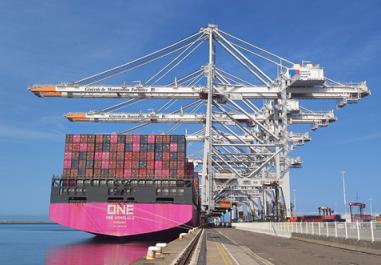
Managing a port, maritime, logistics or industrial company
Coming soon

Training given to directors, executives, managers and/or managers of port, maritime, logistics or industrial companies.
- Strengths and Advantages
- Programme
- Admission
- Tuition fees and funding
- 45 years of expérience
- Quality, service and support
- Location in the first French container port
- An international renown
- Recognised centre of port excellence
- Catalog and taylor made trainings
- Good balance between theory and practice
- Wide network of experts
The IPER training catalogue is being revised to meet the needs of port infrastructures and their stakeholders, both public and private.
Pending its finalisation, a number of training courses should be available in 2025. We will be coming back to you shortly to introduce them.
The advantages of IPER
Programme
The programme is currently being revised.
Please do not hesitate to contact us.
Registration
- A’ levels and 12 years of professional experience
- A’ levels + 2 and 8 years of professional experience
- A’ levels+4 and 6 years of professional experience
- A’ levels + 5 and 5 years of professional experience
- 272h
- 13 sessions of 2 to 4 days over 11 months
- Le Havre : 20, quai Frissard, 76600 Le Havre - discover Le Havre campus
-
Well-being and Inclusion
Inclusion of students with disabilities
For several years now, EM Normandie has been committed to the inclusion of students with disabilities and has been striving to make it as easy as possible for them to learn, to continue their studies, to live socially within the school and to find employment. Specific training for its teachers and support services, school facilities, digital accessibility, etc. EM Normandie promotes values of equal opportunities and respect for differences, through the sharing of an inclusive culture and the continuous development of its practices. Are you disabled or have a chronic disabling illness? We can provide you with comprehensive support, whether it be in the context of your classes/exams, your search for internships, work-study programmes or jobs, or even in preparing for your expatriation.
Who may be interested
This programme is aimed at any manager or executive wishing to develop their skills and/or evolve professionally.
Entry requirements
Duration
Mode of study
Location
Tuition fees and funding
Tuition fees
The cost of this course is €8,600/person, net of tax.
Our prices include the training programme, teaching materials, lunches and coffee breaks. Additional costs, including accommodation and dinners, are the sole responsibility of the learner.
Funding
Financing solutions are available. Please contact us for more information.

